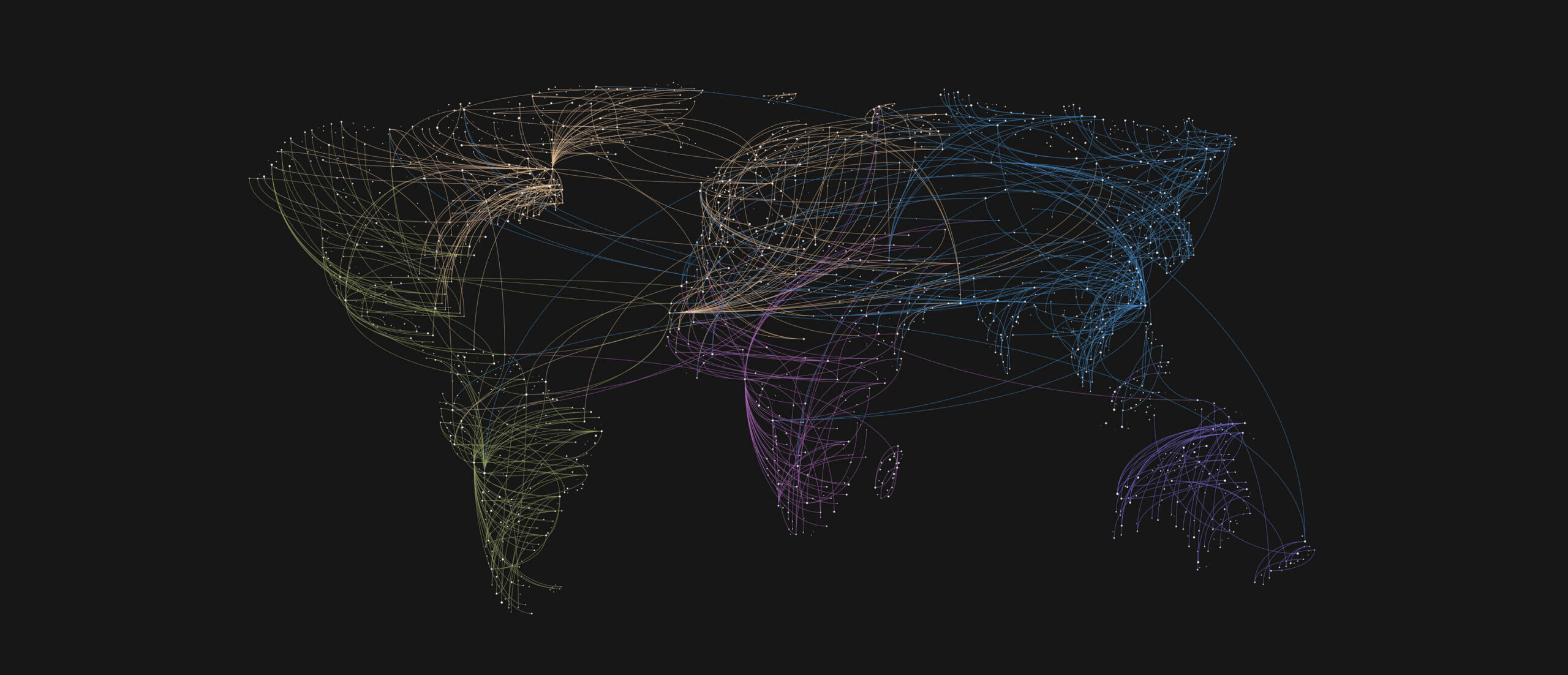Not Just Transportation, But Connection: Personalizing The Passenger Journey at 30,000 Feet


Executive Perspectives
When Delta was founded 100 years ago, powered flight was still a new concept. Few could have predicted the trajectory that would lead our business from operating crop-dusters to moving millions of travelers safely and comfortably around the world on technology that has continued to connect people and communities in fearlessly innovative ways.
For both the customers we serve and our own Delta people, our focus is on innovating with heart, always keeping the human connection at our core. That’s been central to our values since our earliest days. And while our origins are rooted in technological breakthroughs, the pace of change is driven by customers demand for highly personalized, intuitive, and seamless experiences that they have now come to expect. Today, technology is enabling that delivery more than ever, empowering us to delight customers in ways we’d never thought possible.
Technological innovation has fundamentally reshaped customer expectations well beyond the airline industry. Leaders face the need to not only adapt to technological advances but also proactively harness the power of new technologies like AI to reimagine their customers’ experiences.
As Delta celebrates its centennial year and we reflect on the growth of aviation, we see a parallel in the revolutionary potential of AI. Looking ahead to our next century of flight, technology will increasingly power our growth and our goal of transforming the travel experience for our customers.
Just as the ingenuity of the Wright brothers unlocked our ability to traverse the world, data and AI now empower our dedicated teams to deliver the high-touch experience we are known for at a newer, higher level, well beyond cruising altitude.
ENGAGEMENT WITH QUALITY RESOURCES: EMPOWERING
As a high-touch company with a critical frontline workforce, our philosophy has always been that technology will never replace our people. Instead, it’s about enabling them to do their best work by providing resources and innovation that empower them to always
focus on what’s most important
for our customers.
At Delta, we know that what can’t be replicated is the quality and service our people deliver every day. That’s why the integration of AI is anchored in augmenting the capabilities of our team members, not replacing them. A warm smile at check-in, reassuring guidance at the gate, attentive service in the cabin – these human elements remain the intentional cornerstones of a positive travel experience. AI now serves as a powerful enabler of these interactions. By focusing our efforts on leveraging the synergies between human engagement and technological capability, we are able to elevate service standards and foster unforgettable moments that create lasting customer satisfaction.
From predictive maintenance intelligence for our aircraft maintenance teams to streamlined information in the Fly Delta app that frees up our airport and in-flight teams, technology doesn’t replace our teams’ skills; it levels them up – making those skills even more effective.

AI is not a substitute for human expertise and empathy, but a catalyst for human empowerment.
- Ed Bastian | CEO, Delta Air Lines
The strategy is simple. AI is not a substitute for human expertise and empathy, but a catalyst for human empowerment. By providing our teams with intelligent tools and actionable, data-driven insights, we are cultivating more informed, efficient, and ultimately more empathetic service delivery.
INNOVATION MAKES OUR OPERATION MORE RELIABLE
Customers want to be on time, regardless of whether they are heading to an important meeting or on a long-awaited vacation. In an industry where even a minor delay can ripple and disrupt hundreds of customers, our teams constantly raise the bar to help us deliver on our core brand promise of safe, reliable operations. But no matter how good we are, we never stop looking for ways to get better. Innovative AI tools are giving our teams new capabilities to solve complex challenges and be more consistent for our customers.
Embedding leading-edge technology is giving our people incredible insights. For example, predictive maintenance, powered by Delta’s TechOps division, uses sophisticated AI models to anticipate and address potential maintenance issues, allowing teams to better forecast supply chain demands, ultimately enabling us to maximize the availability of the aircraft our customers and flight crews depend on. In another pioneering use case, Delta became the first U.S. carrier to garner FAA approval to use drones for maintenance inspections, speeding up the process while increasing safety for our team members, previously handling these inspections from incredible heights.
We operate in a data-rich industry. By always looking to the future and providing our people with the tools they need, we can run our airline more efficiently, use less fuel, extend the life of our fleet, and most importantly, run the safe, on-time airline our customers expect from Delta.
ANTICIPATING – AND MEETING – CUSTOMER NEEDS AT EVERY TURN
Predictive intelligence is also redefining the passenger journey. AI-powered tools empower our teams to anticipate passenger needs, personalize interactions with greater precision and proactively smooth friction points that can detract from the overall travel experience.
We take pride in delivering a seamless, tailored experience for our customers, which has become more relevant than ever as today’s travelers expect the same highly personalized and intuitive engagements they encounter in other parts of their lives. For example, we have an opportunity to use tools like the Fly Delta app to blend customers’ physical and digital experiences, serving as an intelligent digital concierge. It goes beyond basic flight information to create a thread of tailored, real-time guidance and recommendations from the start of booking to arrival at a destination.
From recommending when to leave for the airport based on real-time traffic conditions to providing timely notifications on gate changes and even offering predictive delivery estimates for checked baggage, the resources we can provide our customers in the app are limited only by our imaginations. Just last year, Delta customers engaged in 1.3 billion in-app interactions. But the technology is just the enabler. It’s the human touch of our agents and crews who use this information to offer proactive assistance and genuine care that truly elevates the experience.
This commitment to intelligent engagement extends to every part of a passenger’s journey: from booking their ticket to getting to the airport and even through security, where Delta passengers can use biometric facial recognition for a contactless security experience. During the in-flight experience, travelers benefit from our flight attendants who harness insights from AI-driven entertainment recommendations and optimized catering to better serve passenger preferences. While our team members have always been committed to meeting the needs of customers, these new technologies are offering more ways to support customers at a higher level.
GOING BEYOND TRANSACTIONS: PERSONALIZATION AT SCALE
Data-driven personalization has also been a critical tool in reimagining how we unlock the customer experience with our SkyMiles program. By understanding each passenger, their wants and their needs, we are moving beyond SkyMiles as a transactional system and cultivating deeper and more meaningful connections with our customers. While SkyMiles began as a traditional rewards program primarily focused on miles flown, it has evolved to encapsulate individual preferences and lifestyles to further that human connection. It goes beyond knowing basic information about customers to finding ways to meaningfully connect – for example, to honor Million Milers.
This personalization wouldn’t be possible without data. Our unified data architecture ensures that every interaction, whether digital or face-to-face, is informed by a holistic understanding of the passenger’s journey. This depth of understanding extends to our strategic partners who are involved in different aspects of our customers’ journeys – from Starbucks and Uber to American Express and YouTube. By intelligently analyzing our own rich data and that of our partners, technology helps our teams identify patterns in customer behavior that empower them to deliver highly relevant and timely offers that resonate with customers’ needs and habits.
In an increasingly competitive global marketplace where airlines differentiate themselves as much on quality and consistency as price or route networks, this data-driven approach to loyalty transcends transactional incentives. Powered by technology and executed with human understanding, this engagement fosters loyalty by making customers feel recognized, understood and valued.
FLIGHT OF THE FUTURE: OUR VISION FOR INDUSTRY EVOLUTION
While leading technologies like AI offer seemingly unlimited ways for businesses to change their operations, leaders must remain cognizant of their mission and their values. For Delta, that means keeping people at the center of everything we do, which demands that all the ways we implement technology must be aligned with continuing to serve our customers at the highest level.
Delta’s journey with AI – and the lessons learned along the way – offers a compelling blueprint for leaders across all industries navigating digital transformation. We’ve seen that by prioritizing the customer at every stage, empowering teams with robust data infrastructure (and the expertise to leverage it), and cultivating intelligent systems that learn, adapt and anticipate, we can create transformative customer experiences that foster loyalty.
In a world where customer expectations are constantly evolving, a forward-thinking and agile mindset, coupled with the dedication of your people, is essential not just to survive, but to thrive. Leaders are tasked not just with preparing for how technology links us to the future, but creating that future themselves.
From Delta’s perspective at 30,000 feet, the future of air travel, and indeed the future of customer engagement across industries, is becoming, at the same time, increasingly intelligent and fundamentally human. While our job may be to transport people around the globe, our goal is to bring people and communities together. That credo demands all the benefits of technology with the power of personal connection.
As we reflect on the last century and look ahead to the next 100 years of flight, this latest technological evolution means the sky is no longer the limit. It is just the beginning.
The views and opinions expressed herein are solely those of the individual authors and do not necessarily represent those of The Consello Group. Consello is not responsible for and has not verified for accuracy any of the information contained herein. Any discussion of general market activity, industry or sector trends, or other broad-based economic, market, political or regulatory conditions should not be construed as research or advice and should not be relied upon. In addition, nothing in these materials constitutes a guarantee, projection or prediction of future events or results.























